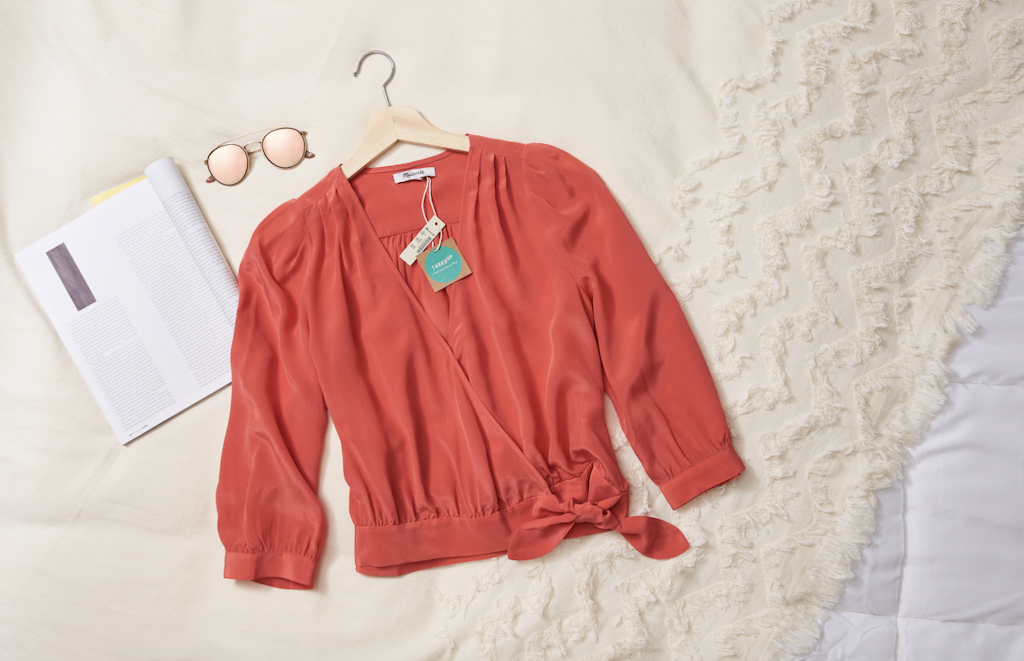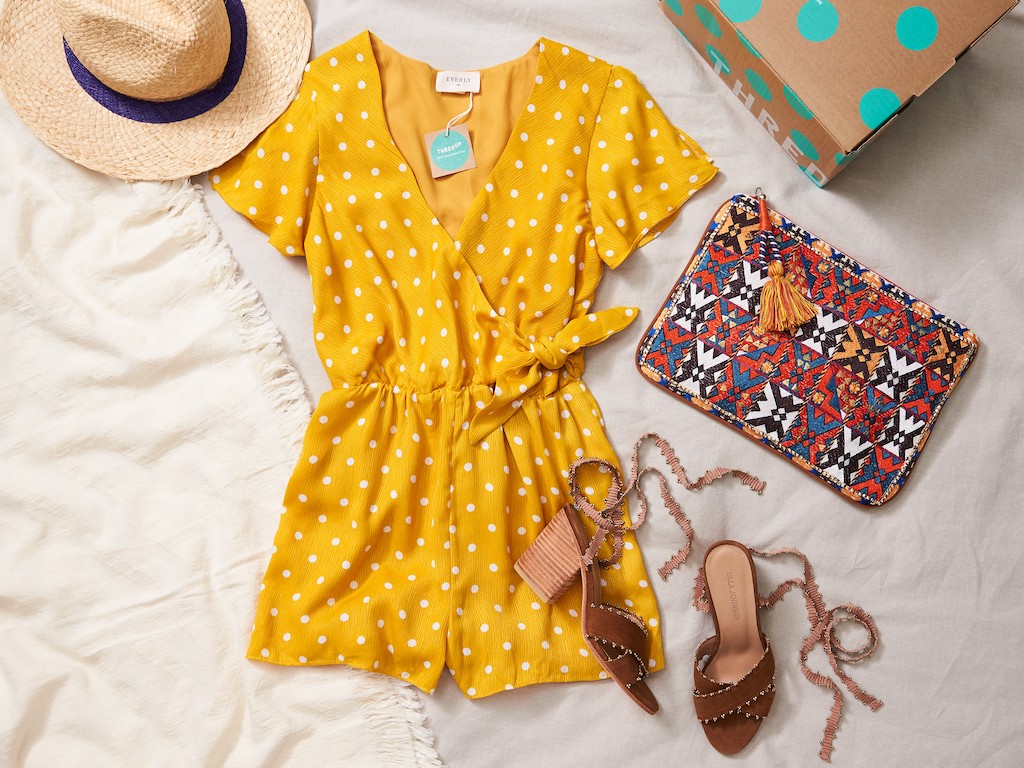3 Mins Read
American multinational retail chain Walmart has just become the latest company to jump into the resale trend in a new partnership with secondhand apparel platform thredUP. Customers will be able to choose through thousands of preloved items for women and children on Walmart’s e-commerce site for a discounted price. It comes after multiple fashion brands have begun embracing resale in the past year as consumers demand conscious choices.
Customers can now browse through thousands of secondhand items on Walmart’s site after the department and supermarket retail giant partnered up with resale platform thredUP. Free shipping will be offered for orders totalling US$35 and up, and purchases that do not fit can be returned at any nearby Walmart store.
Walmart says that the partnership has been in the making for almost a year, but that offering resale items for a discounted price will be more relevant now as consumers become not only increasingly eco-conscious, but budget-conscious too amidst the economic downturn as a result of the coronavirus pandemic.
Over the past few months, millions of people around the world have been faced with pay cuts, furloughs, or have lost their jobs altogether.

Read: ThredUP launches calculator for your wardrobe’s environmental footprint
The new resale initiative will also help the big-box retailer expand its online fashion presence, as brick-and-mortar shops have been struggling to stay afloat after being shuttered for months. Some are reopening, but may only offer curbside pick-up options or have a limit on foot traffic.
Collaborating with thredUP therefore offers an avenue for Walmart to bolster economical offerings online, while getting in on the rapidly growing sustainability trend.
Since the San Francisco-based consignment startup opened doors in 2006, thredUP has exploded in popularity and stocks over 45,000 brands, from both high-end designer names and fast fashion labels. It has raised more than US$300 million in capital funding and investment from institutional names such as Goldman Sachs and Highland Capital Partners.
Eyeing the trend, a growing list of retailers have decided to partner with thredUP. Gap, for instance, has begun distributing thredUP’s clean-out bags, which customers can use to mail their items and collect shopping credit that can be spent at Gap-owned brands and its namesake stores.

Read: Secondhand fashion is taking over the world, from thrift to luxury
Other brands have chosen to launch their own resale programs, such as H&M’s flagship store in Stockholm that will offer recycle, repair and resale services, and Asian e-commerce giant Zalora’s latest preloved collection.
It’s clear that over the past year, the heightened scrutiny over the environmental footprint of fashion has struck a nerve with consumers. According to the Ellen MacArthur Foundation, the fashion industry is responsible for 10% of global carbon emissions and contributes a truckload of textile waste every single second.
It also produces 20% of wastewater as toxic contaminants such as synthetic dyes and bleaches are commonly used in the manufacturing process.
Shoppers are therefore embracing resale items, which helps to lengthen the lifespan of goods before they are thrown away. According to a report released by thredUP, the global secondhand fashion market will reach US$51 billion within the next five years, overtaking the mainstream fashion market by 2028.
Want to know the latest in sustainable fashion? Read more fashion news on Green Queen here.
Lead image courtesy of Walmart.




